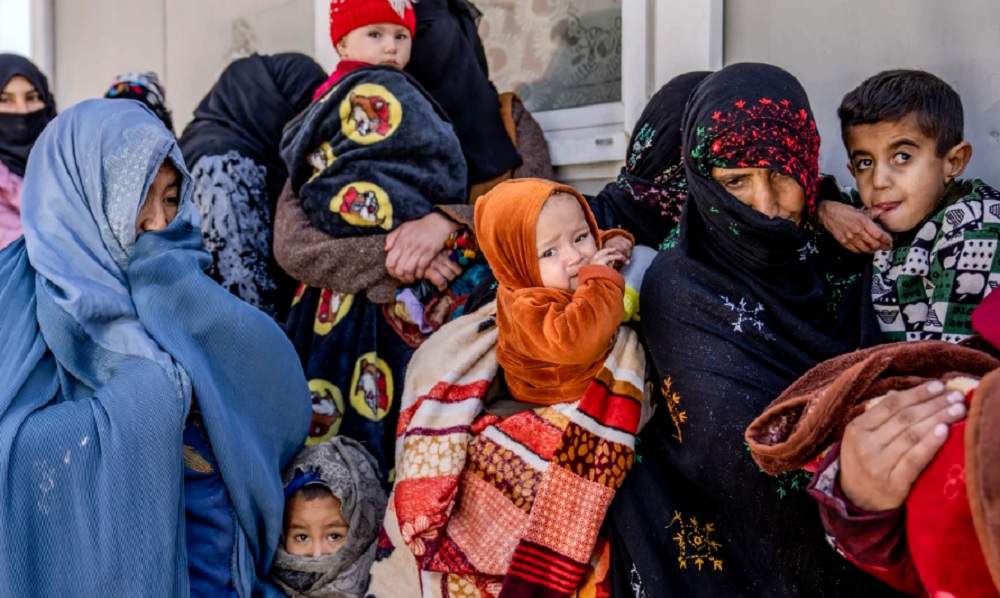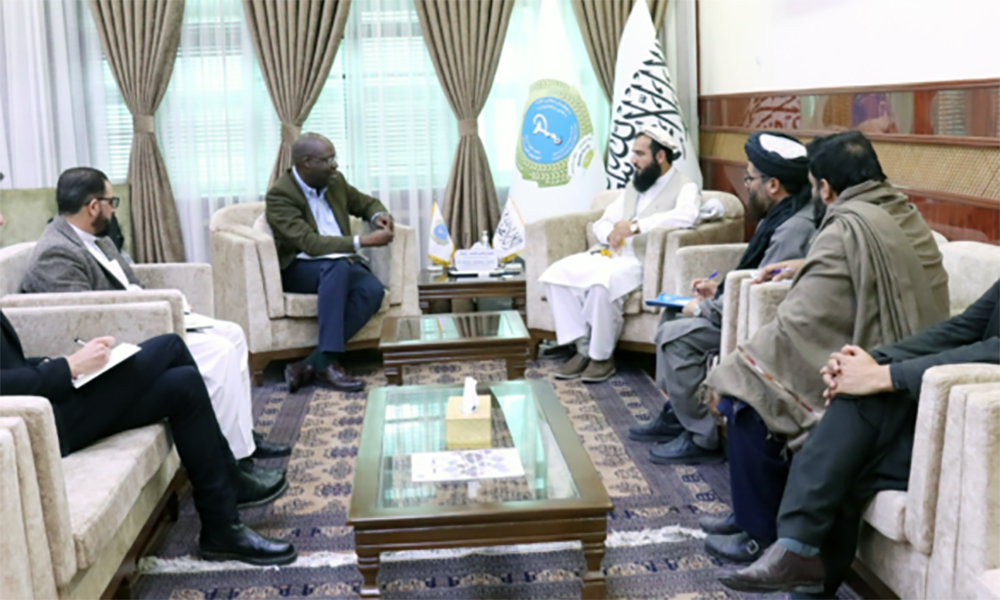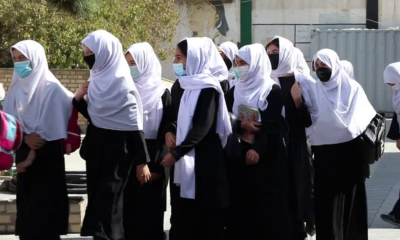Health
Health ministry records massive spike in malnourished patients

The Islamic Emirate of Afghanistan’s (IEA) public health ministry said 820,000 people, including mothers and children, have sought treatment for malnutrition so far this year.
According to a video message by Javid Hajir, a spokesman for the ministry, 570,000 of them were children under the age of five.
Hajir added that during this period, about 381,000 cases of severe malnutrition and 189,000 cases of moderate malnutrition have been registered throughout the country.
He said their survey showed that 3.8 million children under the age of five were currently suffering from malnutrition in Afghanistan, of which about 1 million had severe malnutrition and about 2.8 million of these children suffer from moderate malnutrition.
According to a VOA report, the public health ministry said more than 360 malnourished children had died in Afghanistan since the beginning of the year.
There are currently more than 2,400 health centers across Afghanistan for the treatment of malnourished patients.
“Also, 120 of our central, provincial and district hospitals have been set up to provide inpatient services to these patients. At present, 12,400 inpatients are currently with us,” Hajir said.
Two days ago, a senior official of the United Nations Children’s Fund (UNICEF) in Afghanistan expressed concern that with each passing day, the incidence of malnutrition among children in the country is increasing.
Mohamed Ag Ayoya, from UNICEF Afghanistan, tweeted that he and a director of the fund had visited a number of hospitals in Kabul and Parwan province to review the treatment of malnourished children.
Ayoya added that they have seen children dying in these hospitals.
A day earlier, the United Nations Children’s Fund (UNICEF) said that 1.1 million children in Afghanistan were facing the most severe forms of acute malnutrition.
Health
Majority of Afghans with mental disorders are women: officials

Based on last year’s data, 52 percent of people with mental disorders in Afghanistan are women, the Ministry of Public Health said.
However, after the Islamic Emirate took over the country and with the improvement of nationwide security and the provision of better health services, mental disorders have decreased, the ministry said.
“Overall, the mental security of men and women in Afghanistan is not ensured and their mental security is disturbed. According to the figures shared with us, in 2023, 52 percent of the visitors for mental disorders were women,” said Sharaft Zaman Amarkhil, the spokesperson of the Ministry of Public Health.
“Generally speaking, we can say that compared to the past, the instances of mental illnesses have decreased,” he added.
People suffering mental disorders mostly refuse to share their problem, willingly or unwillingly.
“There are many problems at home; We are poor. I finished school, but didn’t find any job,” Ansar, a mentally ill person, said.
According to the World Health Organization (WHO), half of Afghanistan’s population suffers from mental distress.
Factors such as unemployment, poverty, domestic violence, ban on girls’ and women’s education and work, and drugs are said to be key contributors to mental distress.
Health
Over 1 million women in Afghanistan malnourished last year: WFP

A total of 1.2 million women in Afghanistan were malnourished last year, the U.N. World Food Programme (WFP) said on Thursday.
Mona Shaikh, head of nutrition at WFP Afghanistan, said that the number of malnourished women is expected to increase this year.
On malnourished children, she said that their number will reach 3 million this year, but WFP will be able to assist only 1.6 million of them.
WFP warned that after foreign assistance cuts last year, it saw a rise in children’s admissions to malnutrition clinics in Afghanistan.
More than 23 million people are in need of humanitarian assistance in Afghanistan this year, according to the United Nations. Over half of them are children.
Health
Public Health minister meets with head of the UN refugees agency

Dr. Qalandar Ebad, the Minister of Public Health met with Leonard Zulu, the head of the United Nations High Commissioner for Refugees, on Thursday in Kabul to discuss issues facing the health sector in the country.
Among the issues discussed was that of the establishment of new health centers for returnees in the country.
Ebad said the provision of better health services for compatriots and returnees was one of his priorities and requested the cooperation of this organization in this field.
Leonard Zulu assured Ebad of the organization’s continued cooperation.
-

 5 days ago
5 days agoSaar: Concerns over drug trafficking from Afghanistan discussed
-

 Tahawol5 days ago
Tahawol5 days agoTahawol: Concerns over continuation of acting government discussed
-

 Regional3 days ago
Regional3 days agoIndian foreign ministry advises against travel to Iran, Israel
-

 Latest News5 days ago
Latest News5 days agoBanning girls’ education has caused economic issues: private school officials
-

 Latest News4 days ago
Latest News4 days agoAfghanistan withdrawal probe sparks anxiety within Biden administration: US’s McCaul
-

 Sport5 days ago
Sport5 days agoGujarat end Rajasthan’s winning streak with IPL thriller
-

 Latest News3 days ago
Latest News3 days agoTop former US general claims Daesh-Khorasan is ‘on the upswing’
-

 Latest News3 days ago
Latest News3 days agoLightning strikes in Helmand kill one, injure three
























